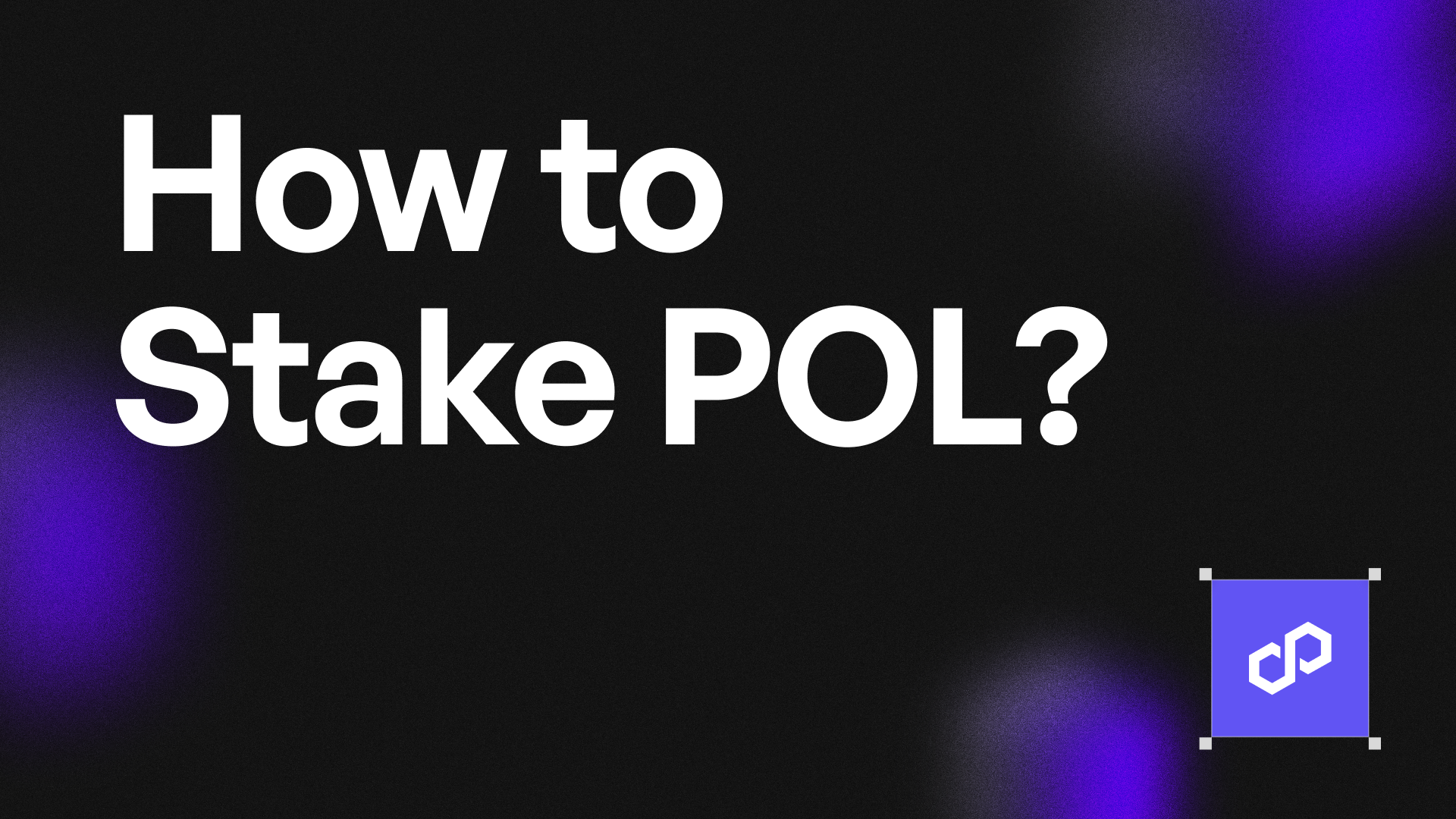Step-by-Step Guide to Staking POL Tokens on Polygon and Agglayer

Unlocking the Future of Polygon: The Importance of POL Staking
Understanding the Role of Stakers in Polygon’s Ecosystem
In the Polygon network, stakers play a crucial role in maintaining security and validating transactions. By staking POL on Ethereum, users contribute to the decentralization and integrity of the Polygon ecosystem. This unique requirement arises from Polygon’s dual-client architecture, which necessitates staking on Ethereum. Unlike many Layer 2 solutions, POL offers tangible utility, not only securing the network but also powering Agglayer.
- Understanding the Role of Stakers in Polygon’s Ecosystem
- The Value Proposition of POL
- Benefits of Staking POL
- What is POL?
- Why Choose to Stake POL?
- How to Stake POL
- Prerequisites for Staking
- Step 1: Bridge Your POL to Ethereum
- Step 2: Connect to the Staking Hub
- Step 3: Delegate Your POL
- Rewards and airdrop Opportunities
- Staking Rewards
- airdrop Eligibility
- About Polygon Labs
- Disclaimer
The Value Proposition of POL
As Polygon integrates with Agglayer, it will gain access to a growing user base and increased liquidity, all facilitated by POL. This integration aims to create a seamless user experience in the crypto space, with POL staking at its core. Polygon’s ambitious roadmap outlines plans to revolutionize global financial transactions, targeting an impressive 100,000 transactions per second (TPS) and instant finality through a series of upgrades.
Benefits of Staking POL
Stakers are not only vital for network security but also stand to benefit from various incentives. Through the Agglayer Breakout Program, stakers become eligible for airdrops from projects within the Polygon ecosystem. The next anticipated airdrop comes from Katana, a specialized DeFi chain designed for enhanced yield and liquidity, developed by Polygon Labs in collaboration with GSR.
What is POL?
POL, previously known as MATIC, has evolved to align with Polygon Labs’ vision of creating a decentralized internet that empowers individuals globally. This transformation has turned POL into a hyperproductive token, serving multiple purposes beyond just transaction fees and staking. As the native token of Agglayer, POL holders can expect to receive airdrops from incubated projects as a reward for their participation.
Why Choose to Stake POL?
Polygon operates on a Proof-of-Stake (PoS) model, relying on validators to create blocks, confirm transactions, and submit checkpoints to Ethereum. By delegating POL to a validator, users contribute to the network’s security. As Polygon undergoes significant upgrades to become the leading chain for payments and real-world assets (RWAs), the importance of staking will only increase. In return for their contributions, stakers earn a share of the validator’s rewards without needing to manage a node or complex setup—it’s as simple as connecting a wallet.
How to Stake POL
Prerequisites for Staking
Before you begin staking, ensure you have the following:
- POL on the Ethereum Mainnet (staking is not available on the Polygon PoS chain)
- ETH in your wallet to cover Ethereum gas fees
- An EVM-compatible wallet like MetaMask or Rabby
- Access to the Polygon Staking Hub
Step 1: Bridge Your POL to Ethereum
If your POL is currently on the Polygon PoS chain, you will need to bridge it to Ethereum using the Polygon Portal. Connect your wallet, select POL, and follow the instructions to complete the bridging process. Be aware that this step involves Ethereum mainnet transactions, which may incur varying gas fees.
Step 2: Connect to the Staking Hub
Visit the Polygon Staking Hub, connect your wallet, and browse through the list of available validators. Currently, there are over 100 active validators. You can check their performance and historical data at validator.info/polygon.
Step 3: Delegate Your POL
After selecting a validator, click “Delegate” on the Staking Hub, specify the amount of POL you wish to stake, and confirm the transaction in your wallet. Note that gas fees will apply on Ethereum, and there is no minimum staking requirement.
Rewards and airdrop Opportunities
Staking Rewards
By delegating POL, you will earn staking rewards over time, which can be withdrawn via the Staking Hub. You can monitor your staking performance and accumulated rewards under the “My Account” section.
airdrop Eligibility
Staking POL also qualifies you for various community airdrops. The upcoming Katana airdrop is just one of the opportunities, with additional projects like Miden and Privado expected to reward stakers as well. Keep track of your rewards and airdrop eligibility through your account and the Community Drops page.
About Polygon Labs
Polygon Labs is a pioneering Web3 software company focused on developing the Polygon Proof-of-Stake network, recognized as the leading blockchain for payments and RWAs. The company is committed to creating a low-cost, high-speed network, securing billions in stablecoins, and fostering a robust payments ecosystem to enhance Agglayer’s use cases in an interoperable Web3 environment. Polygon Labs has also played a significant role in advancing zero-knowledge technology, successfully incubating projects like Katana, ZisK, Miden, and PrivadoID through the Agglayer Breakout Program.
Disclaimer
The information provided in this article is for informational purposes only and should not be construed as legal, financial, or tax advice. Users are encouraged to conduct their own research and due diligence before making any decisions. Polygon reserves the right to modify or update any information at its discretion and assumes no obligation to publicly disclose such changes. Always refer to the site’s terms of use for more details.







